Research Articles
Issue Editorial Board

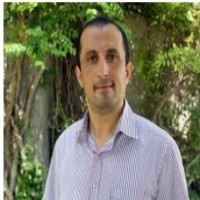
 0000-0001-8052-9411
0000-0001-8052-9411
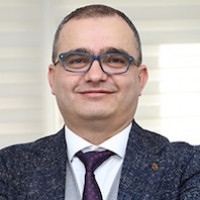
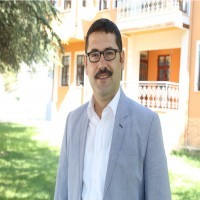

 0000-0002-4100-5831
0000-0002-4100-5831
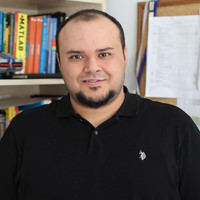
 0000-0002-3501-6497
0000-0002-3501-6497

 0009-0002-8409-099X
0009-0002-8409-099X

Issue Reviewers

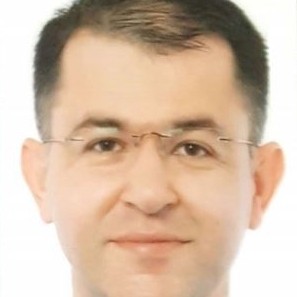


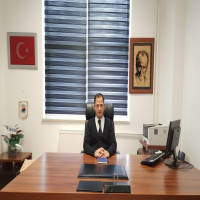
 0000-0001-8034-5743
0000-0001-8034-5743

 0000-0002-1863-1578
0000-0002-1863-1578
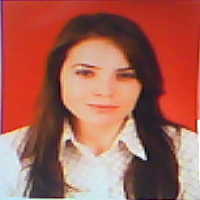
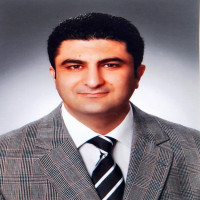

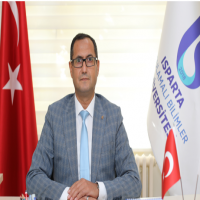

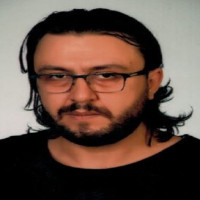
 0000-0001-7927-8790
0000-0001-7927-8790


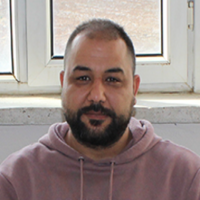

 0000-0001-9620-1760
0000-0001-9620-1760
Aim & Scope
International Journal of Sustainable Engineering and Technology (IJSET), which has been in publication since 2017, is a multidisciplinary journal covering all subjects of engineering. IJSET aims to bring the latest scientific/technical developments in engineering sciences to the relevant scientists and readers. In order to shed light on the knowledge base of engineering sciences and technological developments, it includes research articles and review articles on experimental and theoretical advances in engineering sciences. In order to ensure that the scientific content is accurate and appropriate, all manuscripts are sent to at least two referees who are experts in their fields for evaluation. Articles that are deemed favorable at the end of the evaluation process are queued for publication as soon as possible and the owner of the article is notified. The works to be published must not have been published anywhere before and publication rights must not have been granted. All responsibility of the works to be published in the journal belongs to the author(s).
The types of publications that can be accepted for publication in IJSET are as follows.
Research Article: These are articles that reflect an original research with its findings and results. The study must contribute to science.
Review Article (compilation): These are articles that scan a sufficient number of scientific articles, summarize the subject at the current level of knowledge and technology, evaluate and interpret the findings by comparing them.
Author Guidelines
The following writing template must be taken as a basis for the manuscripts to be sent to IJSET. The copyright transfer form must be uploaded with the article.
The similarity rate should be maximum 25% in all studies to be sent to IJSET.
Click here to access the copyright transfer form.
Click here for the manuscript template.
Ethical Principles and Publication Policy
GENERAL INFORMATION
International Journal of Sustainable Engineering and Technology (IJSET) aims to contribute to scientific and technological development by publishing within the framework of the journal publication policy in order to provide the opportunity to evaluate the work of Engineering, Technology and Interdisciplinary academic studies and graduate students, and to make all scientific studies available to other researchers. IJSET is published twice a year in June and December.
Within the scope of the journal's publication policy, original “Research Articles” and “Reviews” in Turkish and English are accepted.
OPEN ACCESS POLICY
International Journal of Sustainable Engineering and Technology (IJSET) is a peer-reviewed open access journal “Open Journal Systems (Open Journal Systems)”. Open access is provided by “DergiPark ULAKBIM Journal Systems” for free online access to published articles. There is also no need to subscribe to access the articles. The journal adopts the Budapest Open Access Initiative (BOAI). According to the BOAI, Open Access is “peer-reviewed scientific literature that can be freely accessed, read, downloaded, copied, distributed, printed, scanned, linked to full texts, indexed, transferred to software as data and used for any legal purpose, without financial, legal and technical barriers, via the Internet.” [See http://www.budapestopenaccessinitiative.org/boai-10-recommendations]
REMUNERATION POLICY
International Journal of Sustainable Engineering and Technology adopts an Open Access approach (BOAI) and articles are free to publish, read and download. Likewise, the journal does not charge any submission fee, editorial processing fee, peer review fee or publication fee for articles, manuscripts, etc. All articles that have completed the peer review process and have been accepted are published without any submission and/or evaluation fee. No fee is charged for magazine subscription.
TRANSFER OF COPYRIGHT
The manuscripts submitted for publication to the International Journal of Sustainable Engineering and Technology must be original works that have not been previously published or submitted for publication elsewhere. Authors must agree to waive the copyright of their work and transfer the copyright of their work to the International Journal of Sustainable Engineering and Technology simultaneously with the submission of the manuscript for evaluation. Authors who will submit their manuscripts to the Turkish Journal of Science and Engineering should fill in the “Copyright Transfer Form” document, sign it with wet signature and upload it to the system together with the manuscript.
ETHICAL PRINCIPLES
1. Research and Publication Ethics Standards
International Journal of Sustainable Engineering and Technology in academic studies submitted to the journal in accordance with national and international standards regarding ethical principles and values;
- The principles set out in the YÖK “Scientific Research and Publication Ethics Directive” should be taken into consideration
- The Committee on Publication Ethics (COPE) adopts the International Standards for Editors and Authors.
In this context, it undertakes to follow the Code of Conduct and Principles of Transparency and Best Practice prepared by COPE (Committee on Publication Ethics). Following the Cope Guidance for Editors is within the scope of the Editors' duty, and the COPE Ethical Guidelines for Peer Reviewers is expected to be followed by the journal reviewers.
In this context, the Journal undertakes to comply with the above-mentioned national and international rules regarding “Publication Ethics”, “Research Ethics” and “Obtaining Legal/Special Permission”.
The publication request of the works that are found to be contrary to the accepted research and publication ethics standards during the article evaluation process will be rejected. If the violation is detected after the publication of the work, the work will be removed from publication.
If the works are accepted for publication, all publication/publication rights of the works, including electronic publication, belong to the International Journal of Sustainable Engineering and Technology. No royalties are paid to the authors in this regard.
Based on the standards set out by COPE and YÖK, the guidelines and responsibilities for Editors, Authors and Reviewers are given below, depending on the recommendations and general publication requirements.
2. Responsibility of Authors
Before submitting the manuscript to the journal, authors check and confirm whether the manuscript complies with the Law on Intellectual and Artistic Works No. 5846, the ethical standards adopted by the journal, and the publication principles (YÖK Scientific Research and Publication Ethics Directive, Article 4) and spelling rules. It is the responsibility of the author(s) to prepare the article in accordance with the research and publication principles.
1- Authors cannot submit their manuscripts to another journal at the same time.
2- Authors are deemed to have accepted that the work they submit for publication is an original work that has not been published elsewhere.
3- The responsible authors of the article are obliged to share the entire publication process of the article with the other authors of the article, if any.
4. The opinions in the works published in the journal and the responsibility in this regard belong to the author.
5. Manuscripts must be written in “Microsoft Office Word” program. Copyright form must be signed and sent in pdf format.
6- Authors should acknowledge that there is no conflict of interest in the published article and inform the editor of potential conflicts of interest. They should also declare the institutions/organizations that provided financial support for the study.
7- In the articles submitted to the journal, ethics committee approval must be obtained for clinical and experimental human and animal studies that require ethics committee approval, and the approval / approvals (board name, date, number, etc.) must be specified and documented in the article.
8- The similarity rate should be maximum 25% excluding references.
- All types of research studies conducted with quantitative or qualitative approaches that collect data from participants such as interview techniques, experiments, focus group studies, surveys, observations and interviews
- The use of humans and animals, including materials and data, for experimental or other scientific purposes
- Clinical studies in humans
- Studies involving animal experiments
- In accordance with the law on the protection of personal data, in scientific studies involving retrospective studies, documents showing the permission of the ethics committee must be submitted to the journal and the necessary information must be provided in the article.
9- In case the author detects a significant error in the published article, they are obliged to notify the editor of the journal with the details of this situation.
10- In addition to these, information on the signature of the informed consent/assent document in case reports should be included in the article. For the use of content such as photographs, scales, questionnaires, etc. that do not belong to the authors of the article, permission must be obtained from the owners of these contents and stated in the article. In case of use of intellectual and artistic works, it is obligatory to comply with copyright regulations.
11. Authors should indicate their titles, contact information, the name of the organization they work for, and ORCID numbers in footnotes after their names in the work.
12. It cannot be proposed to change the author responsibilities (such as adding an author, changing the author order, removing an author) of a study whose evaluation process has started.
3. Responsibility of Arbitrators
The referee completes the evaluation of the submitted manuscript by taking into account the guidelines announced by COPE (https://publicationethics.org/files/Ethical_Guidelines_For_Peer_Reviewe...) and forwards it to the editorial board within the deadline given to him/her.
Responsibilities of reviewers
1- Reviewers should send the manuscript back to the editor without evaluating the manuscript if it is not within their area of expertise or if they do not have sufficient knowledge about the manuscript.
2- Conflicts of interest should be reported to the editor. There should be no conflict of interest between the reviewers and the stakeholders of the article under evaluation.
3- Reviewers should act impartially, honestly and objectively in the evaluation of the study and should not share information outside the editors. Comments on the article proposal should be made in such a way that the authors can use them to improve the article.
4- Reviewers' criticisms should be scientific and objective. Personal criticism should not be directed against the author, and criticism should be clear and unambiguous.
5- Reviewers should inform the editor if they find a significant similarity and overlap between the work they evaluate and previously published articles.
6- Reviewers assist editors in editorial decisions and help authors to improve their articles through editorial communication. They should point out the completion of other articles, works, sources, references, citations, rules and similar deficiencies related to the article.
7- All article proposals sent to referees are confidential documents and should be treated as such. Article proposals should not be shown or discussed with others. This also applies to reviewers who decline the invitation to review.
4. Responsibilities of the editors
The editor, associate editor and field editors should have ethical duties and responsibilities based on the “COPE Code of Conduct and Best Practice Guidelines for Journal Editors” and “COPE Best Practice Guidelines for Journal Editors” published by the Committee on Publication Ethics (COPE).
1. Make only academic decisions and take full responsibility for these decisions.The editor has the final say on the acceptance or rejection of manuscripts submitted to the journal.
2. Editors should review the manuscripts in terms of scientific ethics rules and reject the manuscripts with unethical behaviors.In terms of the compliance of the referee process with ethical standards, YÖK Scientific Research and Publication Ethics Directive and COPE guidelines are taken into consideration.
3. During the appointment of referees, editors should monitor whether there is a conflict of interest between authors and referees.They should ensure that the submitted manuscripts are evaluated by expert reviewers.
4. The editors are impartial and carry out the evaluation process of the manuscripts regardless of the religion, gender, nationality and political views of the author.
5. Ensure that the principle of peer review is protected (confidentiality) by double-blinding (hiding the identities of authors and reviewers) during the publication process.They should point out the completion of other articles, works, sources, references, citations, rules and similar deficiencies related to the article.
6. Necessary cooperation and coordination is provided to complete the evaluation process of the works within the stipulated period. In this context, the journal should inform the author whether the manuscripts sent to the journal for publication have been evaluated within a maximum of 30 days. The processing time of articles is 3-6 months.
7. Studies submitted to the journal should not be disclosed by the editor or his/her assistants to anyone other than the authors, referees, associate editors and the publisher (information sharing). The journal follows the guidelines set out by COPE (https://publicationethics.org/files/Sharing%20_of_Information_Among_EiC...) in sharing information about the journal's publication process and article evaluation processes with other members of the board.
Price Policy
International Journal of Sustainable Engineering and Technology adopts an Open Access approach and articles are free to publish, read and download. Likewise, the journal does not charge any submission fee for articles, manuscripts, etc., no fee for editorial processing and peer review process or publication fee.

